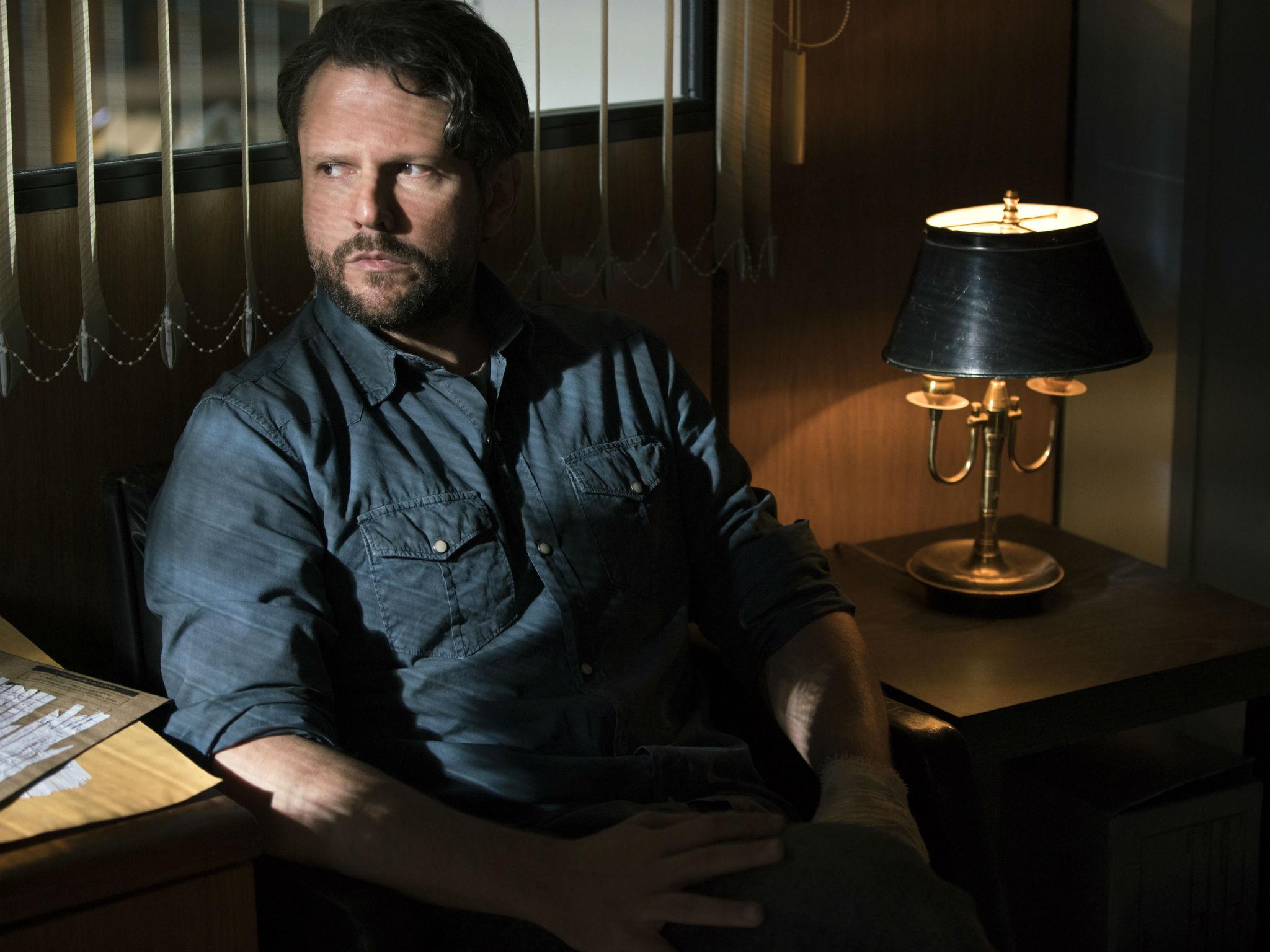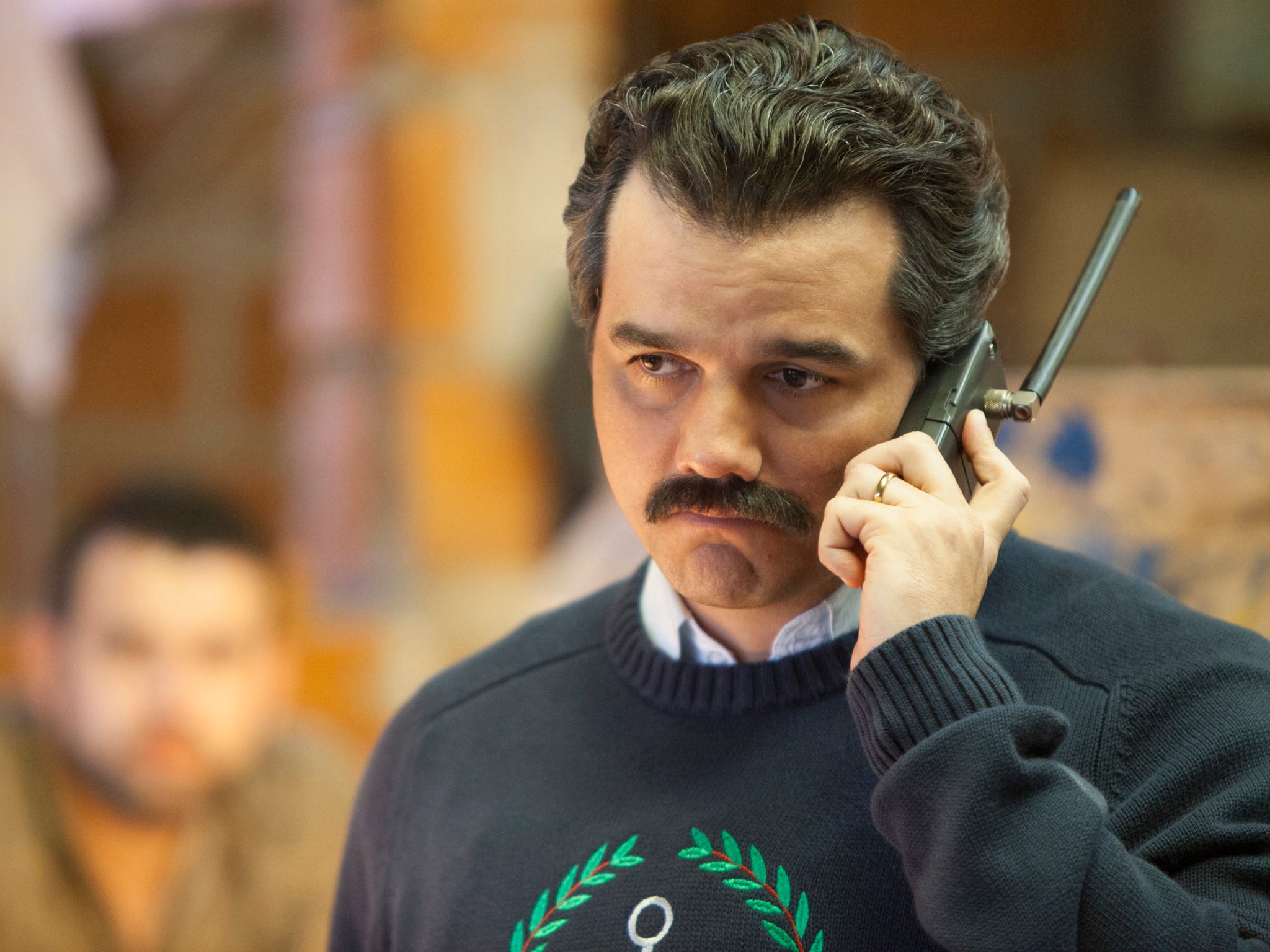Jose Padilha on Narcos, Elite Squad and The Mechanism
The 'Elite Squad' and 'Narcos' director Padilha's new Netflix's 'series 'The Mechanism' is loosely inspired by real events, when a scandal erupts in Brazil during an investigation of alleged government corruption

Your support helps us to tell the story
From reproductive rights to climate change to Big Tech, The Independent is on the ground when the story is developing. Whether it's investigating the financials of Elon Musk's pro-Trump PAC or producing our latest documentary, 'The A Word', which shines a light on the American women fighting for reproductive rights, we know how important it is to parse out the facts from the messaging.
At such a critical moment in US history, we need reporters on the ground. Your donation allows us to keep sending journalists to speak to both sides of the story.
The Independent is trusted by Americans across the entire political spectrum. And unlike many other quality news outlets, we choose not to lock Americans out of our reporting and analysis with paywalls. We believe quality journalism should be available to everyone, paid for by those who can afford it.
Your support makes all the difference.“So am I saying that Noam Chomsky is naive? Yes totally, I am saying that,” posits Brazilian film director Jose Padilha, best known for making Elite Squad, which won the Golden Bear in Berlin in 2008, and making homegrown foreign language productions a thing on Netflix by directing the first two episodes and co-creating Narcos. “I’m saying that because Chomsky is naive. It’s not that he is wrong, just misplaced. He doesn’t understand what is happening.”
Padilha wants to put Chomsky and everyone else straight about what is happening with Brazilian politics with his new political crime drama series The Mechanism. Based on the book Lava Jato by investigative journalist Vladimir Netto the series revolves around Operation Car Wash, an ongoing investigation by the federal police of Brazil that started as a money laundering investigation and became the biggest corruption scandal in Latin America, implicating presidents including Lula and Dilma Rousseff.
When in office from 2003 to 2011 Lula was one of the most popular leaders in the world. Lula’s conviction on corruption charges was recently upheld in the Brazilian appeals court, which is likely to prevent the popular politician running for president in the upcoming elections in October.

After this ruling in January, world-renowned historian and social scientist Chomsky released a video calling for Lula to be allowed to run for president for the wellbeing of Brazil’s democracy. He and many others in the international community believe that Lula’s persecution has been politically motivated. It’s this belief that Padilha’s feels is wrong.
“All the left in the world, all the Chomskys of the world back Lula up because they have no clue what happens in Brazil, the same way that Brazilians have no clue about what happens in New Zealand,” explains Padilha. He says of Lula: “He is a corrupt hero of the left, just like Chavez is corrupt hero of the left who destroyed a country, that is it.”
So what does he think of the right-wing parties who took to power after the ousting of Rousseff. “The right is also totally corrupt, the same thing, maybe worse. The whole thing is corrupt. Anyone who defends one gang against the other gang, because we are talking about a war of gangs, it’s not a war of ideology or political parties, so anyone who jumps on the bandwagon of one of those gangs for ideological reasons is just naive.”

Padilha starts The Mechanism with a police investigation that took place in 2003 before Lula came to power to show that everyone in the echelons of power, right or left, are part of the same corruption. The bigger problem highlighted through the eight-part series is the way democracy in Brazil is structured: “Brazilian election campaigns are financed by donations, which are mainly big corporations. The way of organising democracy in which companies are dependent on politicians to survive is a great way to stimulate corruption and make sure whoever gets elected, Marxist or Capitalist, will have to play into the system to get elected again.” Sound familiar?
Padilha believes that the only way to change things is not by supporting any party, but to “fight for the reformatting of the democratic system so that it doesn’t foster that type of thing: fight for transparency of elections; public financing of campaigns, better legal systems. Until we do that, talking about ideologies is meaningless because ideology is just something that a corrupt person says to get elected.”
The director was born to a middle-class family in Rio in 1967, and studied business, economics and politics in his hometown before transferring to Oxford University where he studied literature and international politics. His academic pursuits continually crop up in his movie work.

Watch Apple TV+ free for 7 days
New subscribers only. £8.99/mo. after free trial. Plan auto-renews until cancelled

Watch Apple TV+ free for 7 days
New subscribers only. £8.99/mo. after free trial. Plan auto-renews until cancelled
In 2002, he announced himself with the pulsating documentary Bus 174, which told the story of Sandro Rosa do Nascimento, who hijacked a bus in Rio in 2002. Padilha interviewed people from the favelas, members of the police force and sociologists to show how socially engineered poverty in Rio causes crime.

His first fictional work, Elite Squad was also about poverty in Rio, this time telling the story from the police perspective. It starred Wagner Moura, who went on to play Pablo Escobar in Narcos. The film created debates in Brazil about excessive police violence used in the favelas and spawned an even more successful sequel. He argues that the situation in Brazil is even worse now than depicted in the films. “Rio is so violent today. Way more than it was when I did Elite Squad.”
To change this, he argues that Brazil needs a radical overhaul from the top down. “How do we save democracy from corruption is the question. The clear and most simple way to look at the failure of democracy is to look at social inequality in the world. The gap has widened dramatically recently. In America it’s incredible. So obviously the system is rigged. The politicians do not represent the interests of the people.”
The work of the police and the impact on the community is one of the major themes of his work, so it was no surprise when he made a reboot of Robocop in 2014, which met with mixed reviews. Luckily for the director, an interest in police and the action their work creates for cinema means his oeuvre is packed with entertaining tension. And he wants to be a commercial filmmaker: “I use elements of my style of filmmaking and storytelling that is apparent through all my movies to make it interesting for the broader audience, because I want everyone to see this. If I made an old intellectual French style film, I would be really praised by the critics but there would be 10 people who watch it as opposed to millions and I want millions to watch it. We need to educate Brazilians about what is happening.”
He is proud of the success of Narcos and his insistence that the Americans should speak in English and the Colombians in Spanish proved locally made content could be exported around the globe. “I just went for it,” he says. “I said it three million times. Whenever I got notes to put more English in, I just didn’t do it. Then they opened the show and it worked and that was that. The idea that today is like the old days where everything has to be in English is just wrong. People are savvy.”
His upcoming feature film, Entebbe, is something of a surprise. It’s about the 1976 hijacking of a plane packed with Israeli nationals by German and Palestinian criminals. There are scenes with take place in the Israeli cabinet between Yitzhak Rabin and Shimon Peres that are in English. It seems that different rules apply for movies than they do for film.
Yet as with all his productions there is a theory at the heart of it. In Entebbe he argues: “By looking at that and also by looking at the dynamic of the Israeli cabinet, through Rabin and Peres and how one wanted to negotiate and the other one didn’t. When you look at that carefully, you understand things that explain what is going on today.”
‘The Mechanism’ is on Netflix now; ‘Entebbe’ is out on 11 May
Join our commenting forum
Join thought-provoking conversations, follow other Independent readers and see their replies
Comments